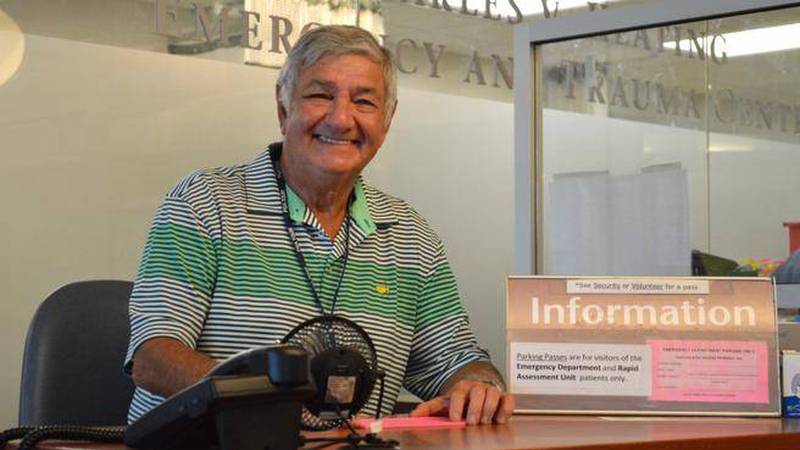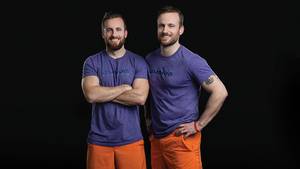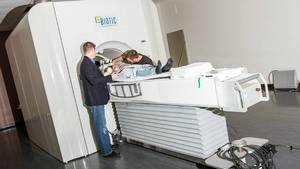No one ever intends to get sick or injured so when a trip to the emergency room is required, it can be a scary and disorienting experience for most people.
Just ask Harvey Silverstein. Through an unexpected series of health complications, including a cancer scare, a heart valve replacement and an aortic aneurism, Harvey was forced to endure countless hospital visits and more than 20 separate surgeries. These experiences, along with a history of working with the medical community, eventually inspired Harvey to become a volunteer in the QEII emergency department.
“I decided I wanted to give back. It seemed like a fit and I thought I could really help people.”
Gordon Spurrell, a coordinator for the QEII's Volunteer Services, indicates that selfless volunteers like Harvey provide a genuinely-vital service.
“It’s all about the human connection,” he explains. “The volunteer is the first person that a walk-in patient or a family member sees when they go into the emergency department. It provides a positive face to health care — that’s so important.”
With paramedics often busy with the constant demands of triage, volunteers are charged with performing basic administrative and operational tasks. This can include issuing parking passes, directing visitors to their loved ones, assisting health centre staff as needed and providing patients with anything they need to make their stay more comfortable. But, as Gordon says, it’s the volunteer’s role as “morale officer” that makes their presence so welcome.
“The volunteer provides a calming presence. It’s all about the friendly connection with the patients and family members.”
As one might expect, a sense of empathy is key according to Harvey.
“You have to put yourself in the place of the person coming in, who is usually stressed, scared, uncomfortable and in acute pain. You have to be patient and listen but, at the same time, direct them to the expert who can help them with their situation.”
By Gordon’s testimony, Harvey personifies all best attributes of a volunteer and much more.
“Harvey has compassion for the patients upon their arrival. He has that experience as well as the ability to maintain confidentiality. That’s important.”
Indeed, Harvey’s personal experience as both volunteer and patient gives him a unique authority when it comes to advising and reassuring people.
“When patients come in with chest pains, they’re pretty scared, even after their cardiogram,” he says. “In at least two or three cases I’ve said ‘Oh, don't worry about it. I’ve had two open heart surgeries. The people here know what they’re doing and you’re in the right place. You did the right thing.’ After hearing that, a look of relief comes over their faces. They’re still stressed but it does abate their fear a bit.”
Given the time he’s logged in the emergency department, Harvey also has some sage advice for first-time emergency room visitors.
“It’s important for people to understand the triage process,” he maintains. “You will get cared for, but someone in obviously-worse condition gets priority.”
Bright-eyed, optimistic and cheery, Harvey’s comforting presence can be summarized in one uniquely-positive philosophy.
“Think of heading into the hospital as another adventure in life,” he says through a genial smile.“There will be good things and scary things, but you deal with it one thing at a time and you get through it.”






